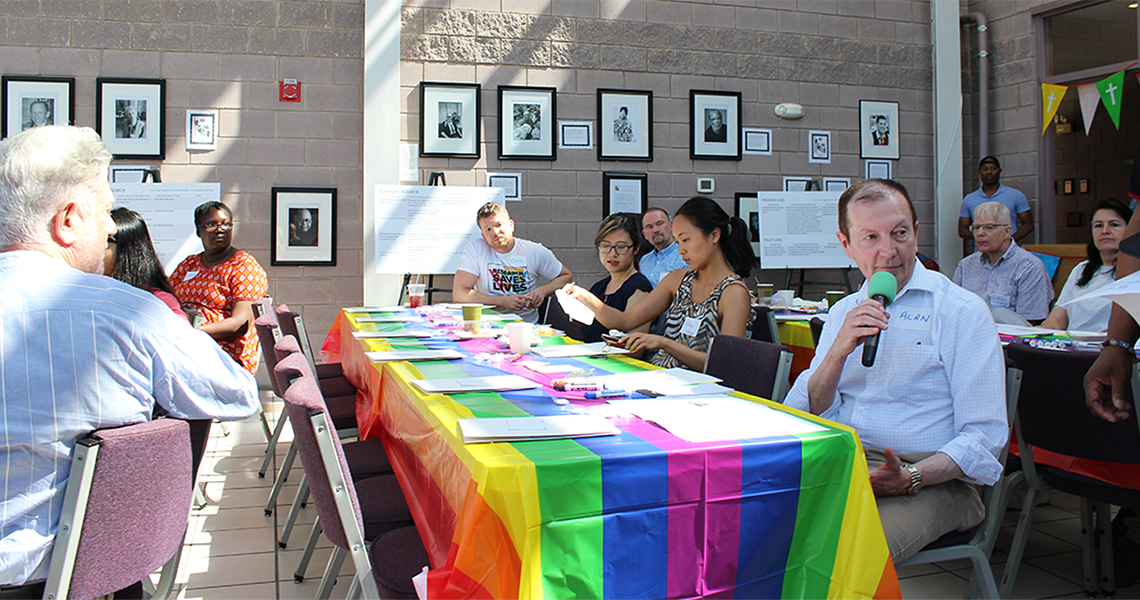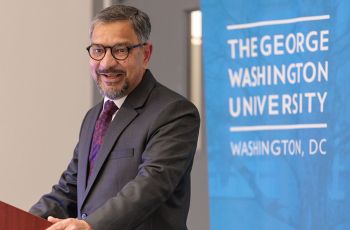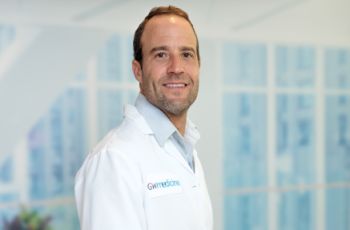The George Washington University (GW) Cancer Center recently co-hosted a workshop on Improving the Health of the LGBTQ+ Community: Advocating for Ourselves Together at Metropolitan Community Church in D.C. More than 60 researchers, students, community members and health care workers gathered to discuss wellness and cancer care needs in the LGBTQ+ community and inclusion in health research. The LGBTQ+ Research Community Advisory Board, sponsored by the GW Cancer Center, planned and hosted the event. Download the meeting report at bit.ly/LGBTQResearchReport2018 and feel free to share widely with your personal and professional networks.
Highlights from the day included a game show ice breaker for participants to learn some basic LGBTQ+ health and research facts; a panel discussion with five researchers; and small group discussions for participants to share their experiences with and suggestions for improving research. Attendees voted on research topics that had been collected over the past year in smaller community conversations as well as new ideas raised during the event. The four top research priorities were identified based on the vote counts and included:
- Solutions for social isolation, especially for transgender women and LGBTQ+ elders
- Increase provision of culturally responsive care for LGBTQ+ patients
- Needs of most stigmatized and least understood subpopulations within LGBTQ+ community
- Ensure universal health care access and coverage for basic health services and transgender transition-related services
Mandi Pratt-Chapman, associate center director for patient-centered initiatives and health equity at the GW Cancer Center, committed to leading work in the area of increasing provision of culturally responsive care for LGBTQ+ patients. Dr. Dana Hines, assistant professor in the GW School of Nursing, committed to leading efforts in community participatory research to identify and address the needs of the most stigmatized and least understood subpopulations within the LGBTQ+ community. For more information or to get involved in these research areas, please email Mandi Pratt-Chapman at mandi [at] gwu [dot] edu (mandi[at]gwu[dot]edu) or Dr. Dana Hines at dana_hines2 [at] gwu [dot] edu (dana_hines2[at]gwu[dot]edu). Individuals interested in serving on the LGBTQ+ Community Advisory Board should reach out to the GW Cancer Center at cancercenter [at] gwu [dot] edu ( cancercenter[at]gwu[dot]edu ) .
About LGBTQ+-Affirming Care and the GW Cancer Center
Washington, D.C. has the highest LGBTQ+ population per capita in the country when compared to U.S. states. This unique population experiences disproportionately high rates of cancer and poorer cancer outcomes. A top priority for the GW Cancer Center is health equity for LGBTQ+ individuals. We aim to become the cancer center of choice for LGBTQ+ patients, providing high quality, affirming cancer care.
The GW Cancer Center is a collaboration of the George Washington University, the GW Hospital and the GW Medical Faculty Associates to expand GW’s efforts in the fight against cancer. The GW Cancer Center also incorporates all existing cancer-related activities at GW, with a vision to create a cancer-free world through groundbreaking research, innovative education and equitable care for all. Learn more about the GW Cancer Center at gwcancercenter.org.




